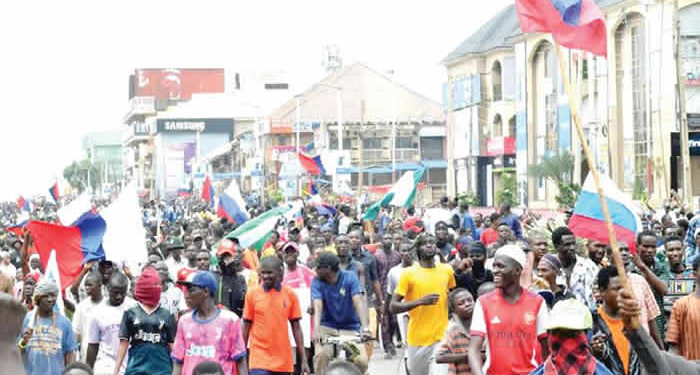The #FearlessInOctober protest on October 1, 2024, saw a record low turnout across Nigeria, including the Federal Capital Territory (FCT) and several states, largely due to heavy security presence. The protest, organized by the Take It Back Movement, was initially aimed at addressing economic hardship and poor governance but was dispersed by security forces in some areas. In Abuja, police used tear gas to disperse protesters at Utako Market, though the police denied the attack, claiming they were stopping looting attempts.
Despite the low participation, protest organizers, including Omoyele Sowore and other civil society groups, vowed to continue their actions, criticizing the government’s policies. The protesters demanded a rollback of policies that they said contributed to widespread hardship, such as high fuel prices and poor living conditions.
In his Independence Day speech, President Bola Tinubu announced a 30-day National Youth Confab to address youth challenges, which was met with mixed reactions. The Take It Back Movement dismissed it as a “jamboree” aimed at rewarding the president’s supporters. The opposition, including the PDP and Labour Party, criticized the conference as a distraction from more pressing issues like the economy and security.
Despite the criticism, some youth groups and government officials, including APC and National Youth Council of Nigeria, praised the initiative. They believed it would provide a platform for young people to influence national policies.
In various states, protests were either halted or met with resistance. In Port Harcourt, protesters were reportedly attacked by thugs, while planned protests in Kano were canceled following the arrest of key organizers. In contrast, solidarity walks in support of President Tinubu’s policies were held in states like Adamawa and Nasarawa.
The protests are part of a broader movement that began in August, seeking an end to what activists describe as bad governance and economic mismanagement. While protests were minimal in some states, the dissatisfaction with government policies remains widespread.
























